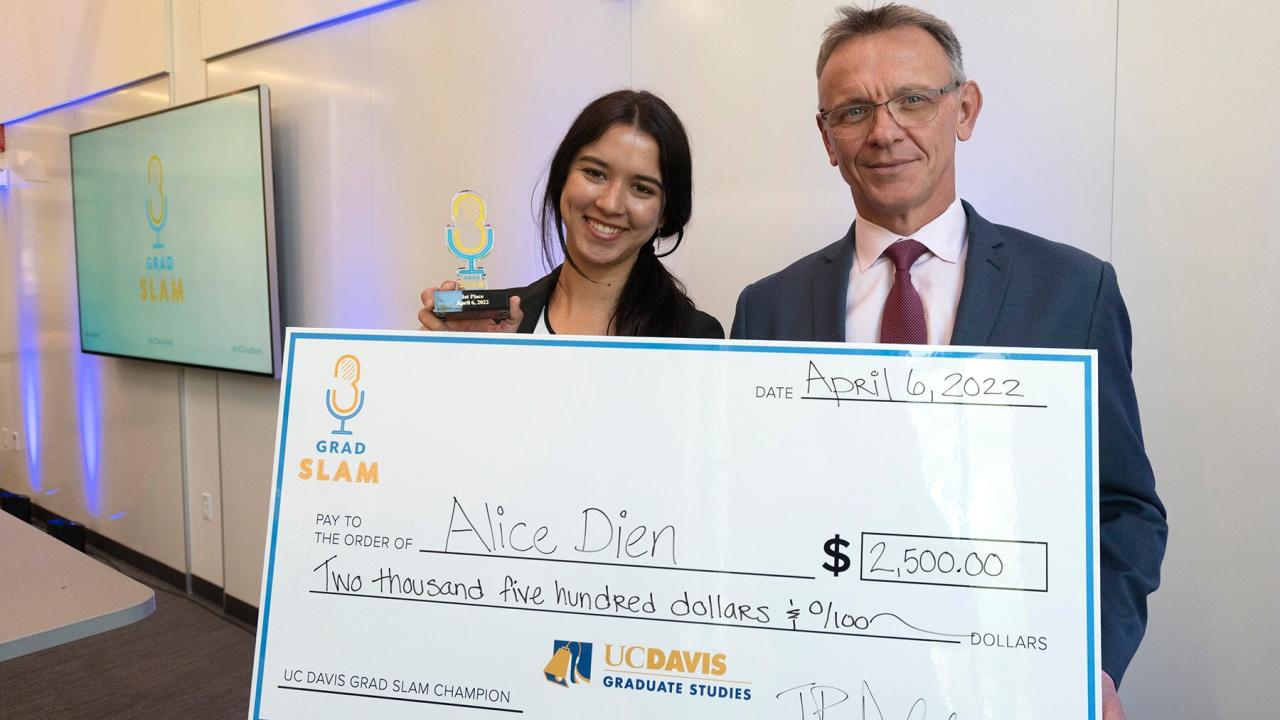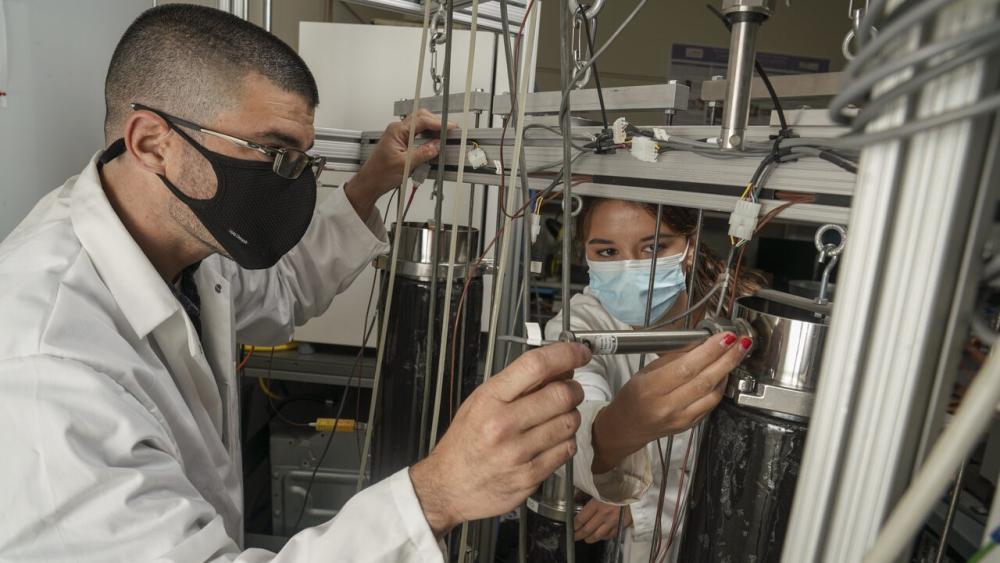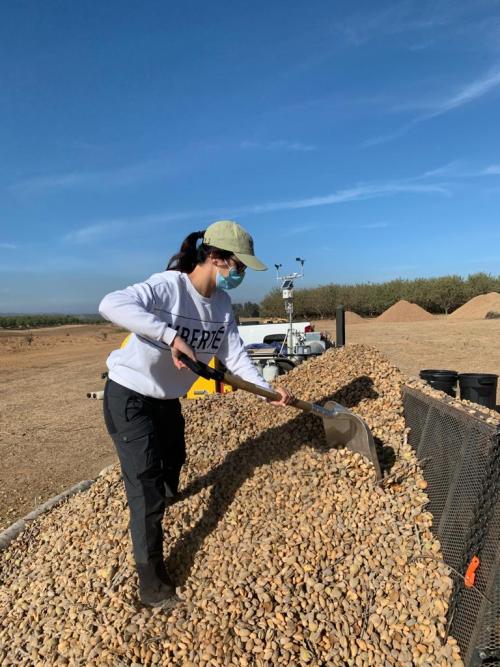
Alice Dien Hits it Out of the Park, Advances to UC Grad Slam Finals with Revolutionary Drying Research
Biological Systems Engineering Ph.D. student Alice Dien won first place at UC Davis Grad Slam on April 6. Her winning research presentation “Cooling Down with the New Hot Air: The Future of Drying in Agriculture” earned her a $2,500 prize, and she will be competing for the top prize at the University of California Grad Slam Finals against winners from the other nine UC campuses on Friday, May 6.
Dien is the first engineer and first non-native English speaker to win UC Davis Grad Slam, which challenges M.S. and Ph.D. students to explain their research in an engaging way for a general audience. Though Dien competed for the first time this year, her University Writing Program teacher Janet Lane mentioned the idea to her nearly four years ago. It took time and practice to feel confident enough with English, but she says it felt natural once she was there.
“I was very nervous—we all were—but when I got on stage, I had so much fun,” said Dien. “I was just so happy to be there and share my talk.”
A New Dry Air
Drying is one of the most expensive and energy-intensive parts of the food production process, and for crops like walnuts and rice, it requires running hot-air dryers 24/7 for up to three months. It’s also the stage at which a third of the world’s harvest is lost to spoilage.
“It blew my mind because drying seems like such a simple process, and we dry so many things every day,” she said.
With the rising cost of energy poised to send food prices in the same direction, Dien’s award-winning presentation highlighted the potential of using desiccants to dry crops after harvest. Silica gel is the most commonly-recognized desiccant, but the materials can come in all shapes, sizes and compositions, as long as they can absorb moisture from the air.
Dien’s team is designing a research-scale drying system that uses desiccants, not heat, to dry the air blown on the newly harvested crops. Because different parts of the world have different climates, they’re currently testing the system in simulated climates with different temperatures, airflows and relative humidities to figure out where it could be viable. Once optimized, they hope to scale up and deploy a full-scale version to farms worldwide.
Dien is excited by the system’s potential to be inexpensive and sustainable. Desiccants can be re-used if they’re heated enough, and though this takes energy, it’s significantly less than constantly running a heater. If producers use solar energy, the whole system could also exist off-grid and benefit farmers that can’t afford high energy prices.

Community Focus
Dien was an undergraduate student in Spain during a period of economic crisis and food insecurity, which got her thinking about how agricultural engineering could help. She joined BAE Professor Kurt Kornbluth’s D-Lab in 2018, shortly after he and Assistant Professor of Cooperative Extension Irwin Donis-González had received funding to study desiccant drying in agriculture. After reading the proposal, Dien thought the project was a perfect fit.
She continues to be passionate about her work and emphasizes the importance of working with the agricultural community on her research.
“I might design a machine, but I’m probably never going to be out there drying,” she said. “They’re the people who ultimately will be able to tell me what is and isn’t working, and there could be a design problem I would never know about without that kind of feedback.”
At Bayer’s 2019 Youth Ag Summit, she won an award for her idea of a digital platform that translated scientific papers into accessible language. Though this was her first taste of science communication, she says she’s recently taken a more community-centric approach.

“Now I’m going to put people in the science from the very beginning,” she said. “[I want to] do science with the people and then publish and translate it; make it more of a feedback loop than a one-way thing.”
She is minoring in International Agricultural Development at UC Davis and has joined the inaugural Public Scholars for the Future cohort, where she’s learning how to engage communities, find common goals and build mutually-beneficial relationships through research. She says she’s often the only engineer in these courses but tries to encourage her peers to follow in her footsteps.
Dien also hopes that her success can inspire confidence in other international students to compete in the future.
“I don’t think being a native speaker makes any difference in your message,” she said. “You can be an international student and be an excellent English communicator. I hope more international students feel encouraged to try.”
To prepare for the UC-wide event, Dien has been incorporating feedback from the UC Davis judges and refining her talk with the help of coaches and her advisors. Cheer on Alice at 11 a.m. on Friday, May 6, via Livestream on the UC website.
